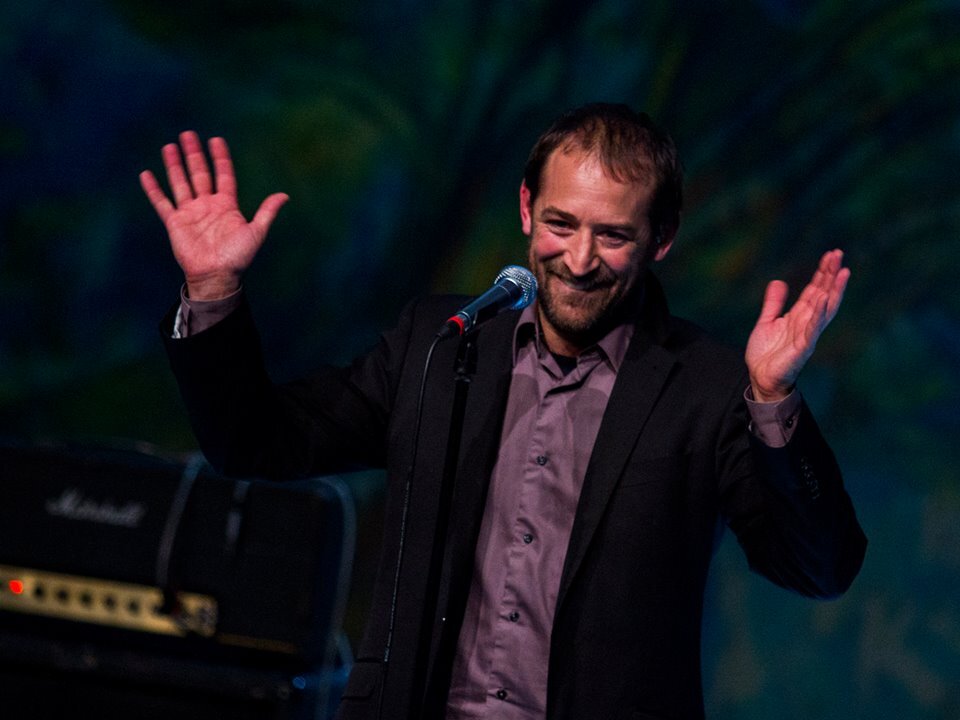WLB: It was about 20 years ago that you first came to Hungary. What was so captivating about Budapest that made you stay, start a family and an improvisational theatre here?
Andy Hefler: I ended up staying indeed: I visited Budapest for the first time 21 years ago, which back then was an exciting and mysterious place full of promising prospects. The city had gone through a lot, and there was hope that many positive changes were to come. In the end I stayed because of love and the countless good friends I made, and it was fantastic to see how much can happen to a city in the course of 20 years.

WLB: What kind of processes did you see unfold?
Andy Hefler: Budapest deserves credit for becoming much more open, cosmopolitan and versatile, somewhat cleaner and more together, but unfortunately it often looks like a grumpy, xenophobic and nationalist city with a set of other phobias.
WLB: Being the director of Grund Színház and cooperating with Random Trip, you improvise a lot, and on top of that you were the trainer of the actors on Beugró and you teach improvisation to everyday people and kids. Why this genre?
Andy Hefler: For me this is the only technique which gives truth a chance to reveal itself. It activates many key processes: creativity, for example, which is in effect problem-solving on the spot. That is only possible if you reduce anxiety. Improvisation is about us: the audience and the artist, we hold a mirror up to each other. A common story in which the improvising actor bears the cross for the audience.

WLB: What can improvisation teach you about everyday life? Or rather: is it something anyone can learn?
Andy Hefler: In our group professors, bartenders and doormen improvise on the same “stage”: what they say or do in any interaction, at any moment is made up on the spot. I think it is an extraordinary skill if someone can stay calm while doing this in front of an audience. Improvisation is about behaviour: you want to achieve something and you employ different strategies to make it happen – with more of less success. These are in essence series of behaviour. Can you teach it? What do you mean? You can’t really teach people something they already know, something they already possess. But you can show them how to do it better. How to make their technique more precise, stronger, more perfect. Improvisation is like martial arts, you have to train.

WLB: Where do you guys “train”?
Andy Hefler: The door of Grund Színház’s Nyitott Műhely (Open Workshop) has been open for five years for everyone who is interested: literally anyone can come here to learn about improvisation techniques.
WLB: Not too long ago you took Grund to the Valley of Arts. Tell us a little bit about this experience: what were the audience and the atmosphere like, what do you like about the Valley of Arts?
Andy Hefler: It was fantastic: we keep returning year after year to play in the Valley, and the mood is always great. The audience is alive and focused, and if the performance is good, they are grateful, because there are always a couple of people who would not have come to a performance in Budapest, for example. We had a show for kids, and an evening program for adults, both were a hit. What is special about the Valley of Arts perhaps is that the audience hangs around after the concerts, they experience the entire thing in a different way - they don’t go rushing into the big city nightlife.





